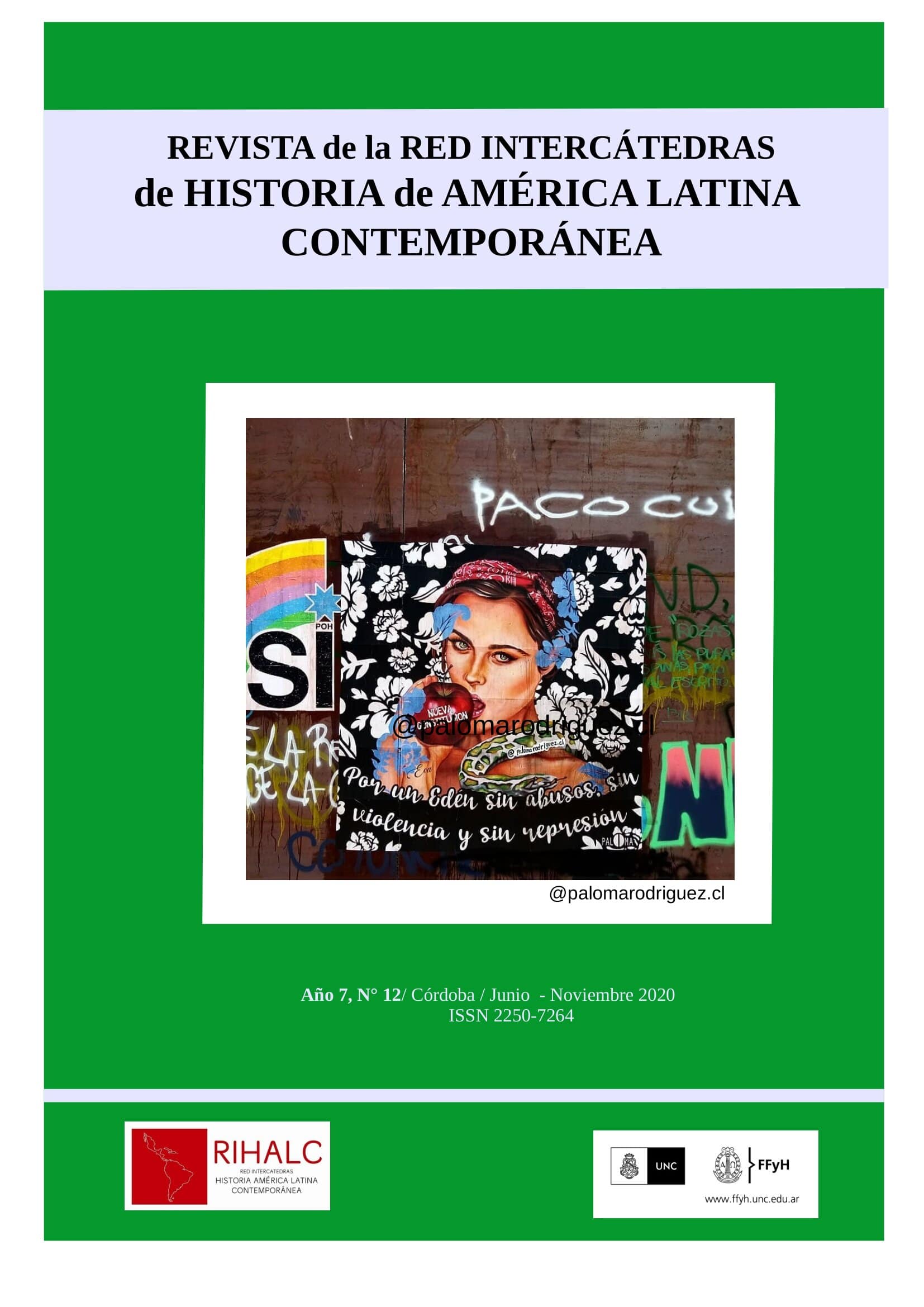Uncomfortable memories in the Peruvian post-conflict society. Censorship and persecution in art for the historical memory between the years 2000 and 2018
Keywords:
Armed conflict, Historical memory, CensorshipAbstract
More than twenty years after the end of the internal armed conflict in Peru (1980 - 1992), the expressions and representations of that period, which differ from the official discourse, continue to be subject to veto and clamp, persecution and criminalization. This study records and presents, through the critical analysis of the discourse, how since the end of the dictatorship of Alberto Fujimori and the return to the democratic system, the battle for a historical memory was censored, criminalized and even penalized as apology of the crime. To do this, creations and artistic manifestations were identified in the period fromto 2000 and 2018; which were crossed out, forbidden and their authors or promoters exposed to derision and discredit, or several of them with judicial processes. The corpus analyzed is composed of newspaper articles published in five journalistic media with national circulation between 2000 and 2018, where the discursive strategies of the media and agents of the State are analyzed. In addition to the representations that from the art in its different disciplines (visual arts, interventions, theater and cinema) one has on the war, the role of the State, the armed forces and the armed groups. The importance of this research breakthrough is justified because it contributes to the reflection and debate of collective memories in contradiction within Peruvian society, and proposes the analysis of a memory of resistance that has been little studied and made visible. It contributes to build a historical memory that adds efforts to influence policies of peace and reconciliation that benefit the people and the nation of Peru.
References
Burt, Jo-Marie (2011): Violencia y autoritarismo en el Perú: bajo la sombra de Sendero y la dictadura de Fujimori. 2° ed. Instituto de Estudios Peruanos, Asociación SER, Equipo Peruano de Antropología Forense, EPAF. Lima, Perú.
Degregori, Carlos Iván (2000): La década de la antipolítica. Auge y huida de Alberto Fujimori y Vladimiro Montesinos. 1° ed. Instituto de Estudios Peruanos. Lima, Perú.
Escárzaga, Fabiola (2017): La comunidad indígena insurgente. Perú, Bolivia y México (1980 – 2000). Plural Editores. La Paz, Bolivia.
Gresores, Gabriela, Spiguel, Claudio y Mateu, Cristina (eds.) (2014): Reflexiones sobre Historia Social desde Nuestra América. Editorial Cienflores. Buenos Aires, Argentina.
Halbwachs, Maurice (1995): “Memoria colectiva y memoria histórica”, en Revista española de investigaciones sociológicas. N° 69, pp. 209-222.
Recuperado de http://www.reis.cis.es/REIS/PDF/REIS_069_12.pdf
Jelin, Elizabeth (2001): “Exclusión, memorias y luchas políticas”, en Estudios Latinoamericanos sobre cultura y transformaciones sociales en tiempos de globalización. Consejo Latinoamericano de Ciencias Sociales. Buenos Aires, Argentina, pp. 91-110.
Madrid, Cecilia y Palomino, Walter (2017): Apuntes sobre las modificaciones realizadas al delito de “apología del terrorismo” tras la emisión de la Ley 30610. [Entrada de blog, 25 de julio].
Recuperado de https://legis.pe/apuntes-las-modificaciones-realizadas-al-delito-apologia-del-terrorismo-tras-la-emision-la-ley-30610/
Mariátegui, José Carlos (2015): El alma matinal y otras estaciones del hombre de hoy y otros escritos. Juan Gutemberg Editores. Lima, Perú.
Milton, Cynthia (2018): El arte desde el pasado fracturado peruano. Instituto de Estudios Peruanos. Lima, Perú.
Montero, Rosa (2013): La ridícula idea de no volver a verte. Recuperado de https://bit.ly/2JBkCf8
Ley N.° 28592. Ley que crea el Plan Integral de Reparaciones - PIR. Diario Oficial El Peruano, 29 de julio de 2005. Lima, Perú.
Ley N.° 25475. Ley antiterrorista. Diario Oficial El Peruano, 06 de mayo de 1992. Lima, Perú.
Ley N.° 30610. Ley que modifica el artículo 316 e incorpora el artículo 316-A al Código Penal, tipificando el delito de apología al terrorismo. Diario Oficial El Peruano, 19 de julio de 2017. Lima, Perú.
Versión abreviada del Informe Final de la Comisión de Entrega de la Comisión de la Verdad y Reconciliación (2004). Hatun Willakuy. Comisión de Entrega de la CVR. Lima, Perú.
Vich, Víctor (2015): Poéticas de duelo: Ensayos sobre arte, memoria y violencia política en el Perú. Instituto de Estudios Peruanos. Perú.
Recuperado de: https://books.google.com.ar/books?isbn=9972515036, 9789972515033
Villa Gómez, Juan David y Avendaño Ramírez, Manuela (2017): “Arte y memoria: expresiones de resistencia y transformaciones subjetivas frente a la violencia política”. Revista Colombiana de Ciencias Sociales, vol. 8 N ° 2, pp. 502-535.
DOI: http://dx.doi.org/10.21501/22161201.2207
Wodak, Ruth y Meyer, Michael (comps.) (2003): Métodos de análisis crítico del discurso. Editorial Gedisa. Barcelona, España.
Downloads
Published
Issue
Section
License
Aquellos autores/as que tengan publicaciones con esta revista, aceptan los términos siguientes:
- Los autores/as conservarán sus derechos de autor y garantizarán a la revista el derecho de primera publicación de su obra, el cuál estará simultáneamente sujeto a la Licencia de reconocimiento de Creative Commons que permite la libre distribución con mención de su(s) creadores, no permite el uso comercial ni las obras derivadas. Los autores, al enviar el artículo, acuerdan publicarlo bajo esta licencia..
- Los autores/as podrán adoptar otros acuerdos de licencia no exclusiva de distribución de la versión de la obra publicada (p. ej.: depositarla en un archivo telemático institucional o publicarla en un volumen monográfico) siempre que se indique la publicación inicial en esta revista.
- Se permite y recomienda a los autores/as difundir su obra a través de Internet (p. ej.: en archivos telemáticos institucionales o en su página web) después del proceso de publicación.



